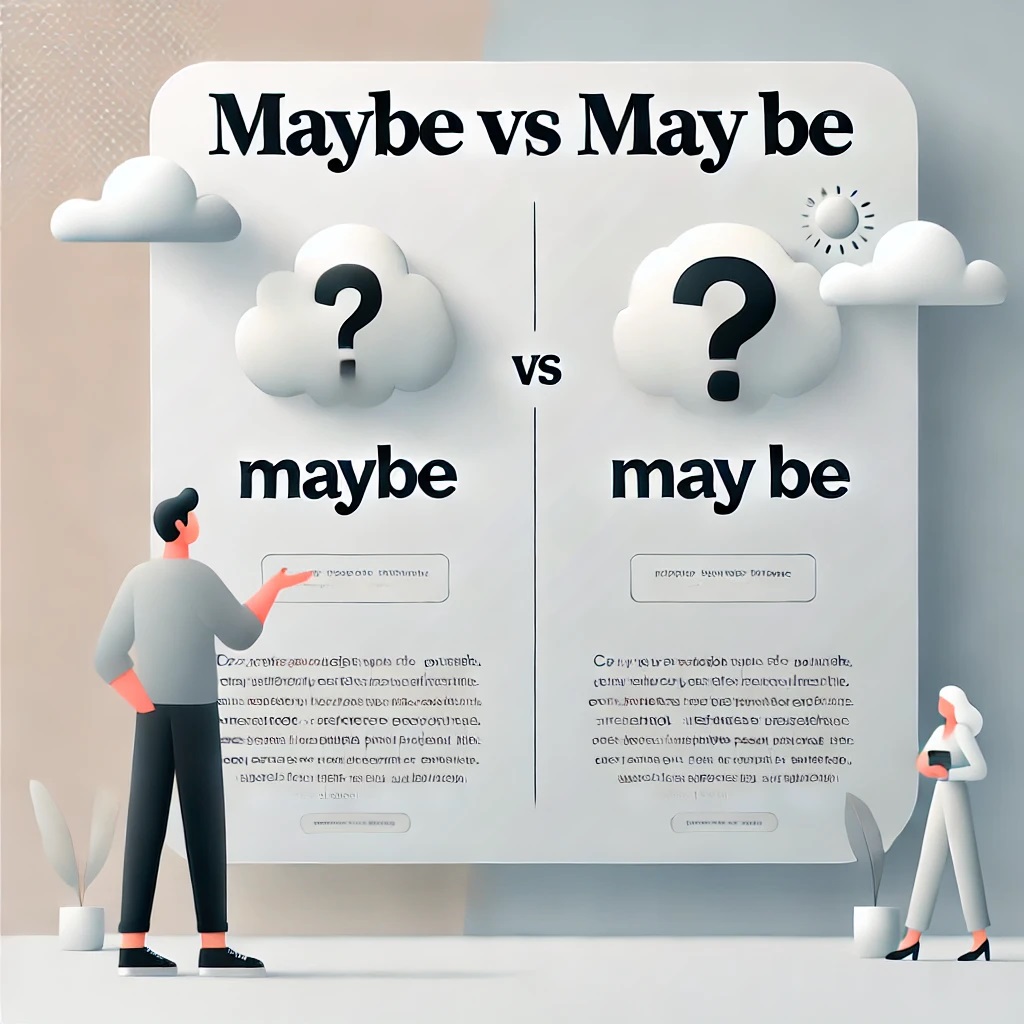English is a beautiful language, but it’s also full of traps. One such tricky pair that even seasoned writers stumble over is the difference between maybe and may be. These two expressions sound exactly the same, and their meanings can appear similar at first glance—but they serve very different grammatical purposes.
At Book Planets, where we support authors through professional services like proofreading for novels and manuscript proofreading, we see this confusion all the time. Fortunately, the difference is easier to master than you might think—and once you’ve got it, you’ll never second-guess yourself again.
In this blog post, we’ll break down the definitions, uses, grammar rules, and common examples of maybe vs. may be, so you can write with clarity and confidence.
What Is the Difference Between “Maybe” and “May Be”?
Let’s start with the simple rule that will help you remember the difference:
“Maybe” is an adverb.
“May be” is a verb phrase.
That’s it. That’s the whole trick. If you can replace the word with “perhaps,” you want maybe. If you’re using a verb phrase where “may” is a helping verb for “be,” you want may be.
Definition of “Maybe”
“Maybe” means perhaps or possibly. It is an adverb that modifies a verb, adjective, or clause.
Examples:
- Maybe she’ll arrive on time.
- I don’t know—maybe you’re right.
- Maybe we should revise this chapter.
You can test whether “maybe” is correct by replacing it with “perhaps.” If the sentence still makes sense, you’re using the right word.
Example with test:
- Maybe we’ll go to the beach.
→ Perhaps we’ll go to the beach. ✅
This usage shows up a lot in dialogue and casual tone, especially in modern fiction. If you’re unsure, our editing and proofreading team can quickly help identify adverb usage and ensure you’re on track.
Definition of “May Be”
“May be” is a verb phrase. It combines the modal verb “may” (indicating possibility) with the verb “be.” Together, they function as the main verb of the sentence.
Examples:
- He may be late to the meeting.
- There may be a delay in delivery.
- She may be the only one who knows the truth.
In these examples, “may be” expresses a potential state or condition.
A quick test: if you can swap in “might be,” then “may be” is correct.
Test example:
- She may be the winner.
→ She might be the winner. ✅
This subtle difference is something that professional manuscript proofreading often catches—especially in fast-paced drafting where grammar errors can sneak in unnoticed.
Real-Life Examples: Side-by-Side Comparison
Let’s look at how “maybe” and “may be” work in similar sentences.
| Incorrect | Correct |
| Maybe it’s too late to call her. | ✅ Maybe it’s too late to call her. |
| He maybe at home right now. | ❌ He may be at home right now. |
| They may be not interested. | ❌ They may not be interested. |
| Maybe she’s lying. | ✅ Maybe she’s lying. |
| It maybe your only chance. | ❌ It may be your only chance. |
When in doubt, break the phrase into its parts. Is it functioning like “perhaps”? Use maybe. Is “may” helping “be” form a verb? Use may be.
Common Mistakes and How to Fix Them
1. Using “maybe” instead of “may be” in formal writing
- ❌ This maybe the most complex part of the novel.
- ✅ This may be the most complex part of the novel.
Why it matters: In formal writing—such as academic papers, professional emails, or manuscripts—this error signals a lack of grammatical control. During proofreading for novels, these misuses are among the most frequently flagged issues.
2. Thinking they’re interchangeable
They sound the same, so many writers think they’re stylistic variants. They are not.
- “Maybe” = adverb, stands alone
- “May be” = verb phrase, requires a subject
3. Overusing “maybe” in place of more precise language
If you’re writing speculative or descriptive fiction, be careful not to lean too heavily on “maybe.” It can create vagueness.
Instead of:
- Maybe she felt scared.
Try:
- She might have felt scared, but her expression was unreadable.
Or refine with sensory detail or internal dialogue.
Tip: A great fiction editing service will help you strike the right balance between ambiguity and clarity.
Tips for Remembering the Difference
- Tip #1: Replace with “perhaps.” If it works, use “maybe.”
- Tip #2: Try “might be.” If it fits, use “may be.”
- Tip #3: Ask yourself—do I need a verb or an adverb?
- Describing possibility or mood? → “Maybe”
- Forming a verb phrase about a possible condition? → “May be”
How This Impacts Your Writing
For fiction and nonfiction authors alike, clarity is currency. Grammatical missteps—especially common ones like “maybe” vs. “may be”—can distract readers, confuse meaning, or even undermine credibility. When we work with authors through editing and proofreading services, we often catch dozens of these subtle issues that impact flow and professionalism.
If you’re working on a draft that needs polishing, or preparing a manuscript for agents or self-publishing, these distinctions become even more important.
Final Thoughts
English is a language built on nuance—and mastering small distinctions like “maybe” vs. “may be” is part of becoming a confident, polished writer. With a simple test (“perhaps” vs. “might be”), you can always make the right choice.
At Book Planets, we’re here to help every step of the way. From proofreading for novels to manuscript evaluations and final polish, our team ensures your writing reflects your full creative potential—without being derailed by easily fixable grammar slips.
Need a fresh pair of eyes on your manuscript? We’d love to help.

